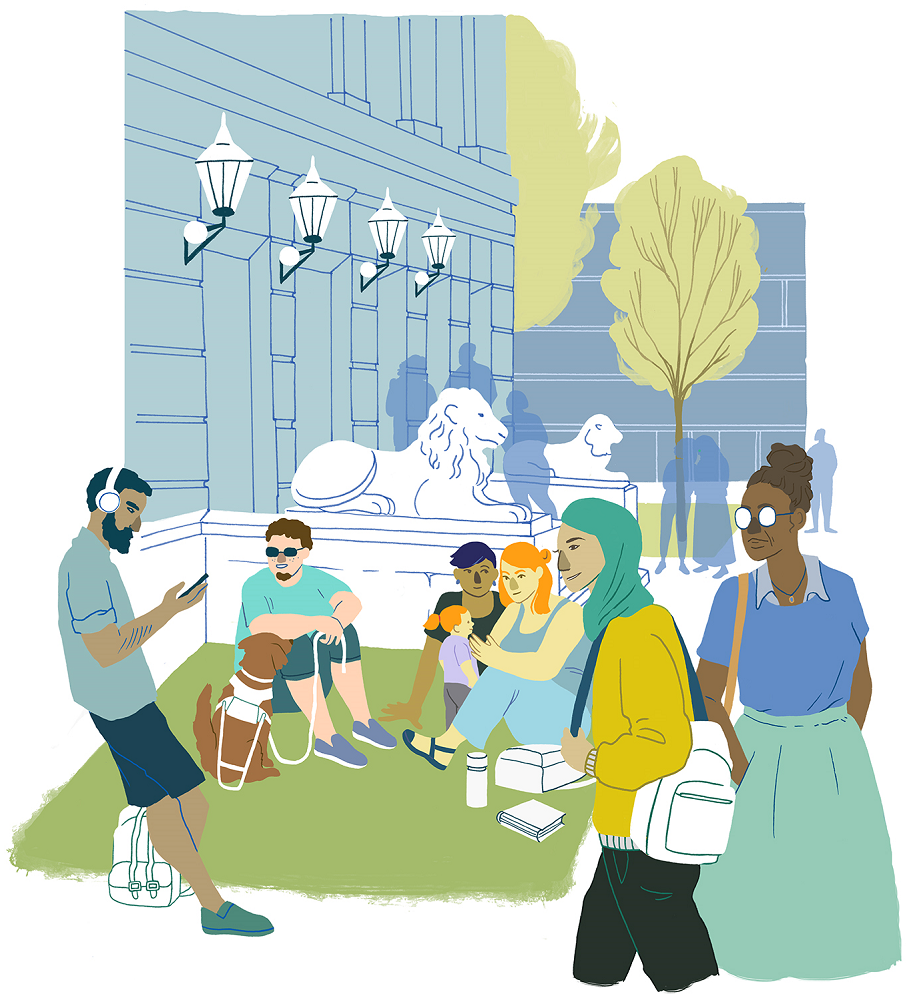Advocacy Groups, Initiatives and Projects at MLU
At Martin-Luther-University there are numerous offers, initiatives and measures, which advocate equal opportunities and anti-discrimination. Below, you find an overview with brief information and additional links. Student initiatives were also included. In case you know of any offer that is missing in the overview, please contact us via email with related information.
Overview
- Complaints office of the General Equal Treatment Act (AGG)
- Amnesty International Hochschulgruppe
- Anton-Wilhelm-Amo-Preis
- Arbeitskreis Alternatives Vorlesungsverzeichnis (alv)
- Working group inclusion
- Working group queer
- Working group sexual harassment
- Working group studying with child(ren)
- Addiction Prevention Working Group
- audit family-friendly university
- Representative for international students and academics of the Academic Senate
- Counseling center and arrangements for refugees
- DAAD-Preis
- Die bittere Pille
- eMERgency in cinema
- Family representative
- Family Office
- FEMINISMEN
- FEM POWER
- Panel Legal Gender Studies
- gender*bildet (gender*educates)
- Gendercontrolling
- Equal opportunities office
- Halle postcolonial
- Support for international students e.V. (HauS)
- Initiative neue plurale Ökonomik (initiative new plural economics)
- Inklusionsteam der MLU
- Inclusion Team of the Philosophical Faculty III
- International Office
- Youth and trainee representatives (JAV)
- Commission for gender equality
- Kritische Einführungswochen (KEW)
- Kritische Jurist_innen: Recht im Kontext (critical lawyers: law in context)
- Kritische Politikwissenschaft
- Kritische Psychologie
- Mentoring-Program for junior scientists
- MINTzi
- Mit Sicherheit verliebt (safely in love)
- Compensation for disadvantages
- Staff Committee
- Office for the Prevention of Discrimination and Sexual Harassment
- Prodekanat Gender (Dean’s Office for gender issues (Faculty of Medicine))
- Department for international students of the student council
- Referent für Inklusion
- Rektoratskommission "Anton Wilhelm Amo"
- Rektoratskommission "Gleichstellungsbeirat"
- Rektoratskommssion zur Internationalisierung
- Rektoratskommission zur Aufarbeitung der Universitätsgeschichte in den Diktaturen des 20. Jahrhunderts
- Representative for severely disabled employees
- Senior College
- Sintoma - Medizin und Gesellschaft Halle (Medical science and society)
- Social & conflict counseling
- Sprecher*innen für Soziales des Studierendenrates (Spokesperson/s for social affairs of the student council)
- Stabsstelle Vielfalt und Chancengleichheit (Staff unit for diversity and equal opportunities)
- Student support group “depression/ depressive state”
- Student council (StuRa)
- Stud.IP-study group „Studieren mit Behinderung/ Study with disability“
- German universities open to the world - against racism and chauvinism (universities for openness, tolerance and against xenophobia)
Complaints office of the General Equal Treatment Act (AGG)
The General Equal Treatment Act (AGG) , which came into force in 2006, is intended to prevent or rather eliminate discrimination on grounds of ethnical background, gender, religion or belief, disability, age or sexual identity. It gives all employees of MLU the right to lodge a complaint at the complaints office (AGG), if they experienced disadvantages in connection with their employment on any of the grounds referred to by their employer, supervisors other employees or third persons.
Based on the directive in order to protect against discrimination, (sexual) harassment and violence, people, who are not employees of MLU can address the complaints office as well, if their appeal is directed against a current or former employee of MLU.
Amnesty International Hochschulgruppe

The Universal Declaration of Human Rights was adopted by the member states of the United Nations on December 10, 1948. It includes a total of 30 articles that define the rights of every human being. Since its proclamation, the face of the world has changed positively: Human rights have found their way into international agreements, conventions binding under international law and national constitutions. On the other hand, many states continue to trample on human rights today - not only far away in Sudan, China or Zimbabwe - but also here in Europe. For Amnesty International, the Universal Declaration of Human Rights forms the basis of its work. Since the beginning, helping persecuted and threatened people has been the focus of this worldwide membership organization, which is independent of governments, political parties, ideologies, economic interests and religions.
The Amnesty International University Group plans and organizes joint actions and events, exchanges information in various working groups and drafts Urgent Actions.
Anton-Wilhelm-Amo-Preis
Im Andenken an Anton Wilhelm Amo und ihm zu Ehren verleiht die MLU seit 1994 jährlich den Anton-Wilhelm-Amo-Preis (dotiert mit 1.000 Euro) für Diplom-, Magister-, Staatsexamens- und Masterarbeiten oder vergleichbare Leistungen, wobei bevorzugt Arbeiten von ausländischen Absolvent*innen berücksichtigt werden. Die Wahl Amos als Namensgeber dieses Preises soll betonen, dass die Martin-Luther-Universität offen steht für alle Menschen, unabhängig von Religion und Kultur, Hautfarbe und Herkunft.
Anton Wilhelm Amo wurde als Kleinkind aus dem heutigen Ghana nach Europa verschleppt und an den Hof von Braunschweig-Wolfenbüttel verschenkt. Die Herzogsfamilie ermöglichte ihm eine vorzügliche Bildung, die ab 1727 zu Studien der Philosophie und Rechtswissenschaften in Halle und Wittenberg führte. Amo wurde 1734 promoviert und lehrte ab 1736 als Privatdozent in Halle und Jena. Rassistische Anfeindungen in einem Spottgedicht warfen gegen 1747 Schatten auf Amos Situation. In dieser Zeit soll er Deutschland Richtung Westafrika verlassen haben. Er lebte mindestens bis 1753 in Axim, später in Shama, wo auch sein Grabstein zu finden ist, der das Sterbejahr 1784 vermerkt.
Arbeitskreis Alternatives Vorlesungsverzeichnis (alv)
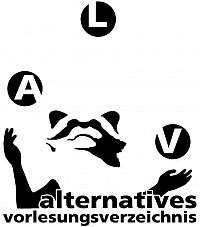
The Alternative Vorlesungsverzeichnis (alv) was born during the student strike of 1997/98. The goal was and is to expand the classic educational offerings of the university in an attempt to make it a place of self-determined learning and teaching. The alv is an open project - new people with new ideas are welcome and this makes itself felt again and again programmatically.
[ more ... ]
Working group inclusion

Established by the student council in 2013, the working group advocates for students with physical or mental impairment and/or chronic conditions. It aims to strengthen the awareness for inclusion in order for them to study self-determined. The working group wants to encourage the numerous students with disabilities at MLU to seek help. Therefore, it works closely with the representation/ representative for people with disabilities.
Find more information at the website of the working group or on their Facebook page .
Working group queer

The working group of the student council deals with the subject area of Queer Studies. The focus is on questioning what is self-evident and alleged Natural Orders around social categories, such as gender, sexuality, ethnicity and disabilities. These categories of identity should be analyzed critically and their emergence questioned. Standardizing and normalizing mechanisms can be understood as forms of violence, because they marginalize all ways of life, which do not comply with (constructed) “normality”. The working group consists of students from many different fields, which organize lectures and other events in alternating constellations since winter semester 2008/2009.
Find more information at the website of the working group or on their Facebook page .
Working group sexual harassment
The working group comprises representatives of the equal opportunities office, the staff council, the personnel department, the complaints offices, the social- and conflict counseling, the student union, the office for the prevention of discrimination and sexual harassment as well as the student representation. It was founded in July 2013, after an increase of consultancy requests at the equal opportunities office and in connection with existing process sequences at MLU, which proved to be not ideal. The working group has made it an objective to optimize existing structures and to create new ones, to sensitize the members of university to the issue of sexual harassment and to improve the consultation and support of people affected.
Working group studying with child(ren)

Studying, stress and caring responsibilities? The Working Group Studying with Children is there for you!
The Working Group Studying with Children is a working group of the Student Council of the University of Halle and is a contact point for all students with children. As part of the family-friendly university, the working group takes on the student perspective and brings the needs and interests of students with children to the Student Council. The AK Studying with Children has set itself the task of critically accompanying processes and drawing attention to grievances in order to contribute to equal opportunities in studying. Student parents who need help and support, regardless of whether it is about applying for semesters off, compensation for disadvantages or social benefits, or who would like to pass on their needs, can contact the working group. The working group also supports networking and the exchange of ideas between students with children. To this end, the working group organises a variety of events, from flea markets and children's cinemas to workshops, which are interesting for the everyday life of students with children and looks after the children's island in the student council. The working group also works closely with the Family Office, the Equal Opportunities and Family Officers and the Student Council. In order to maintain and further expand this, the working group is always looking for new members and supporters. Anyone, with or without children, who is interested in the topic and wants to get involved can join. More information on the Student Council website.
Infofilm AK Studieren mit Kind (ab 07:07)
Addiction Prevention Working Group
In December 2011, the guideline for operational addiction prevention was implemented, the aim of which is to prevent addictive disorders, to prevent damage and to help employees of MLU who are addicted or at risk of becoming addicted in terms of work and service law within the framework of the duty of care.
The working group is the first point of contact for those affected and their superiors for all questions relating to addiction problems.
It works in strict confidence, but does not offer medical or psychological treatment. However, it helps to clarify the entire problem area and discusses health, psychological and legal issues together. Above all, he motivates those affected to take advantage of further assistance measures. He provides support in the selection of and access to appropriate facilities.
If necessary, the head of the working group can provide two to five hours of so-called "motivational therapy". No formal requirements such as a medical certificate or similar are necessary for this.
The members of the working group would like to ensure that employees affected by addiction recognize the effects of the use of legal or illegal drugs on their work performance. Furthermore, they would like to offer this group of people internal support so that the occurrence of consequences under labor or employment law can be prevented.
audit family-friendly university

The certificate “audit family-friendly university” is a recognized quality seal that is awarded by berufundfamilie gGmbH for a period of three years to those colleges and universities, which are characterized by a family-friendly engagement and practice sustainable family-oriented study and personnel policies. In 2009, the certificate was awarded to MLU for the first time and in 2012, it was successfully re-audited. In 2018, MLU was awarded for the fourth time in a row and may now bear the quality label permanently.
Representative for international students and academics of the Academic Senate
The Representative of the Academic Senate for International Students and Academics acts as a confidant and contact person for international students and academics, for members and affiliates of the university and its institutions in the event of problems within the university and with authorities and institutions in the city of Halle. She is also involved in the optimisation of study and supervision conditions and can, on request, take part in subject-specific examinations as an observer of the procedure. She is involved in an advisory capacity in the development and implementation of measures for the further internationalisation of MLU.
Counseling center and arrangements for refugees
For refugees interested in studying, MLU provides a free guest student program, language courses, tandem programs as well as an own study guidance.
DAAD-Preis
Der Deutsche Akademische Austauschdienst (DAAD) stellt den Universitäten jedes Jahr Mittel für die Auszeichnung einer*eines internationalen Studierenden oder Promotionsstudierenden zur Verfügung. Der Preis wird an eine Einzelperson vergeben. Er soll besondere akademische Leistungen und bemerkenswertes gesellschaftliches oder interkulturelles Engagement würdigen. Das Preisgeld beträgt 1.000 EUR.
Bewerber*innen sollten sich mindestens im 2. Studienjahr eines grundständigen Studienganges bzw. mindestens im 3. Semester eines Masterstudienganges befinden.
Es können sich nur internationale Studierende bewerben, die an der MLU in einem regulären Studiengang immatrikuliert sind (keine Gaststudierenden). Bewerber*innen müssen ihre Hochschulzugangsberechtigung an einer Schule im Ausland erworben haben (hierzu zählen auch deutsche Schulen im Ausland) oder im Ausland erworbene schulische Qualifikationen durch ein deutsches Studienkolleg ergänzt haben.
Die bittere Pille
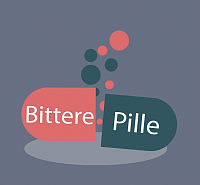
How do social factors influence your health? For example, what impact do the place you live or work have on your well-being? Students of journalism and medicine at the University of Halle swallow the bitter pill together and get to the bottom of health disadvantages on Instagram.
@bittere.pille wants to show how the environment claims health. The project researches the places where diseases originate and shows that health is a challenge for society as a whole.It deals with topics that otherwise receive too little attention. They present these in various media formats on their channel. This also includes discrimination topics such as racism in the health care system.
The bitter pill is part of the project "Diagnosis:Invisible", which makes the effects of social inequality on health visible in various formats. The project was created in the Multimedia and Authorship program at MLU. The project is funded by the international media network Are We Europe.
[ more ... ]
eMERgency in cinema

The film series "eMERgency in cinema-Medicine, Ethics & Law in Film" presents films that focus on ethical and legal aspects of medical practice. Ethical and legal issues are important in clinical practice and medical research. Medical developments and resulting contexts in interaction with ethics and law have an impact on society as a whole. The film series focuses on the representation of these issues in the context of medicine in feature films. All films will be accompanied by an introduction and subsequent discussion by experts and practitioners.
Family representative
The family representatives of MLU are multipliers between the project group, students and employees. On issues concerning family equality, you can approach the family representative(s) of the university or the family representatives of the individual departments.
Infofilm Familienbeauftragte der Fakultäten (ab 04:11)
Family Office
The family office is contact partner on the “audit family-friendly university”. It provides information and advice for students and employees of MLU relating to the reconciliation of work or studies and family life (bringing up children, caring for relatives etc.). Among many other offerings, the family office also advises on the topic of childcare during lectures.
Infofilm Familienbüro
FEMINISMEN
In the winter semester 2018/19, the FEMINISMEN festival started as an association of various primarily student initiatives in Halle. The initiators described their concern as follows: "Feminisms? Yes, because there is no such thing as THE feminism. Even in feminist theories, a variety of approaches and positions can be found, which we want to make visible in the series of events through workshops and lectures. Based on the rare thematization within the formal university context and the relevance for our personal practices of action, we are united by the desire to open spaces for in-depth engagement and discussion."
FEM POWER
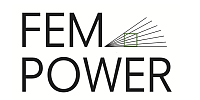
FEM POWER is an ESF-funded program in Saxony-Anhalt to promote and create equal opportunities between women and men in science and research. It was initiated by the Saxony-Anhalt Coordination Office for Gender Research & Equal Opportunities in cooperation with the Ministry of Economics, Science and Digitalization. It is anchored in the program for a gender-equal Saxony-Anhalt and is funded by the operational program ESF Saxony-Anhalt WISSENSCHAFT Chancengleichheit 2014 to 2020 with funds from the European Union.
The program enables a stronger structural anchoring and professionalization of gender equality work, which is the driver for a successful cultural change. The vision of FEM POWER is an equal opportunity and diverse science system.
The two universities and the art academy of the state of Saxony-Anhalt as well as four universities of applied sciences and four non-university research institutions are involved. At eleven science institutions in Saxony-Anhalt, a separate FEM POWER project, each tailored to the institution in question, is being implemented as part of the state program.
Infofilm FEM POWER Sachsen-Anhalt
Panel Legal Gender Studies
The panel Legal Gender Studies is an interdisciplinary event series that started in the winter semester of 2015/16 in the department of law. As an initiative of students and employees, the initiators are concerned to consider the proportion of law and gender relations from various academic perspectives. The perspective of Legal Gender Studies and feminist jurisprudence ought to be promoted as a fixed component also at MLU.
gender*bildet (gender*educates)

The project gender*bildet aims to contribute to the extension of knowledge and competences of university members with regard to gender-related problems. Being designed for a period of three years, it provides lectures with respect to interdisciplinary Gender Studies or rather interconnects corresponding courses at MLU. Moreover, it encourages research projects in this field and makes them visible in teaching. The project comprises four modules, which cover the following fields:
- offering of complementary studies with certificate of attendance
- training courses in the field of gender-sensitive university didactics
- offerings about the relevance of gender aspects in professional disciplines
- distribution of gender competencies as a professional key qualification
Infofilm gender*bildet
Gendercontrolling
Im Rahmen des Professorinnenprogramms III wird an der MLU ein Entwicklungs- und Evaluationsprojekt mit dem Schwerpunkt Gendercontrolling etabliert. Mit Unterstützung des Berichtswesens, statistischen Evaluationen und weiteren geeigneten Maßnahmen, soll das Projekt die universitäre Gleichstellungsarbeit beleuchten und den Fortschritt der Erfüllung des Gleichstellungsauftrages der MLU sichern.
Entwicklungsziel des Projektes ist der Aufbau einer Systematik für die Erfassung genderbezogener Daten im Kontext einer gendersensiblen Hochschulplanung. Die Gleichstellung und Chancengleichheit von Männern und Frauen soll dabei durch die Entwicklung geeigneter Fördermaßnahmen verwirklicht werden.
Zudem gilt es, die Gleichstellung als permanente Querschnittaufgabe innerhalb der Universität zu verankern und Gleichstellungsziele in die Strategie, die Strukturen sowie in die laufendenden Planungs- und Steuerungsprozesse zu integrieren.
Equal opportunities office

Students and employees of the MLU can approach the equal opportunities office on all gender-relevant matters, in particular proposals regarding the improvement of gender equality at MLU, in the event of problems at the study or work place, in case of sexual harassment, when planning projects on gender equality or if they want to know more about the support options for women at MLU. Besides, the equal opportunities office is participating in a number of commissions of the university. Furthermore, the equal opportunities commissioners of the faculties function as contact persons.
Infofilm Gleichstellung
Halle postcolonial
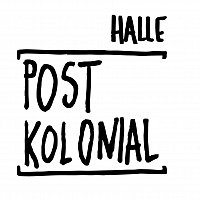
The group "Halle Postcolonial", founded by students from different disciplines, is a group of young activists. The group sees itself as part of a larger movement that works to combat colonial continuities in numerous cities. Among other forms of action, they regularly conduct city walks to show, by example of places in the city, how the racist, anti-Semitic normal state is maintained by not addressing and fighting structures that have existed since colonial times (among other things). In addition to educational work, they emphasize anti-racist solidarity and networking work in the city. As a (currently) majority white group, it is important to reflect their position in a racist society and the different interests in racism-critical work.
Support for international students e.V. (HauS)
The association, established in 1994, supports international students that got into difficulties by no fault of them through membership fees and donations. The financial aid occurs after careful examinations within time-limits that are sufficiently short and unbureaucratically as possible, e.g. by covering the costs for rents, health insurance, aid for subsistence prior to intermediate or final examinations.
Initiative neue plurale Ökonomik (initiative new plural economics)
The interdisciplinary student initiative set itself the task to create an educational offer through self-organized lectures, which meet the requirements of plurality in economic teaching. By this, they intend to stimulate a further debate on the monotony of economic teaching and to provide a platform to discuss various theories as well as current economic events. Because they also want to live the plurality they demand, they explicitly appeal against dogmatism and Group-Focussed Enmity and deal with questions of social inequality.
Inklusionsteam der MLU
To promote inclusion at MLU, a central inclusion team has been formed, consisting of:
- the inclusion officer of the Senate
- the representative for severely disabled persons
- a member of the Diversity and Equal Opportunity Office
- the inclusion representative of the employer
- a member of the staff council
- a person appointed by the Equal Opportunity Officer
- a member of the youth and trainee representative committee
- one person appointed by the student council
- a specialist for occupational safety and environmental protection
Inclusion Team of the Philosophical Faculty III
The Philosophical Faculty III Inclusion Team makes a strong case for inclusion and the inclusion of all people in all areas of study and work life. Tasks include:
- Providing supporting documents to make your studies as barrier-free as possible.
- Finding the right contact person for your concerns
- Networking with internal and external actors, e.g. for the planning and implementation of concrete measures to achieve accessibility in the Philosophical Faculty III.
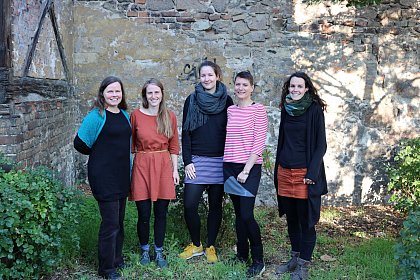
International Office
MLU engages in a lively international exchange with universities all over the world. Approximate 2000 international students and 500 international academics invigorate the university and urban life day-to-day. The team of the international office advises them on financing and funding opportunities, care offers and language courses and supervises international guests and students on their way to MLU as well as during their stay. Along with the department of human resource development, the international office developed the certificate program “international competencies”, which contributes to the promotion of international competencies of employees through various offerings. Employees and apprentices receive the certificate, as soon as they successfully completed the modules “foreign language competence”, “intercultural awareness” and “international exchange”.
Find more information at the website of the International Office or on their Facebook page .
Youth and trainee representatives (JAV)

For adolescents and apprentices the youth and trainee representatives (JAV) are the first contacts for all questions relating to work and apprenticeship, legal provisions as in labor law or regarding possible existing problems at work. Together with the staff council they form the representation of interests of adolescents and apprentices at MLU. They take charge of the situation of adolescents and apprentices and ensures that their interests are represented with competences, fantasy and energy.
Commission for gender equality
The commission for gender equality is the plenum of the centralized and decentralized equal opportunities commissioners of MLU as well as their deputies. During the discussions, which take place every six weeks, gender equality policy strategies and the implementation of measures promoting equal treatment are discussed. Those responsible for different administrative sectors or protectorates as well as professional experts are invited on various topics.
Kritische Einführungswochen (KEW)
The Critical Introductory Weeks are an association of student working groups and left-wing political initiatives that want to give new and old students the opportunity to exchange ideas about political and socio-critical topics. It is about university aspects such as the structure of studies or contents of teaching, but also about socio-political contents. Events are offered on current political debates and local issues - at the university, but also throughout the city. The program aims to draw attention to the diversity of social grievances, create space for discussion, and highlight opportunities for engagement.
Kritische Jurist_innen: Recht im Kontext (critical lawyers: law in context)
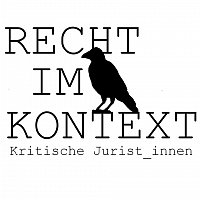
The Arbeitskreis kritischer Jurist:innen is an association of students from different semesters and pursues the goal of a critical and interdisciplinary examination of legal doctrine, jurisprudence and law in its social and political context and thus a supplement to the often dogmatic and apolitical study of law.
To this end, the group organizes lectures, reads and discusses texts together, observes and comments on current and politically explosive court cases in Halle and the surrounding area, and attends conferences such as the twice-yearly Federal Congress of Critical Law Groups.
In addition, as students of different semesters, they support each other in their studies and network with other critical groups from Halle.
Kritische Politikwissenschaft

Critical Political Science (KriPoH for short) is a left-wing student group that reads texts together that they miss out on at university. So far, these have been anarchism, postcolonial theory, feminist critique of the state, revolutionary theory, and identity politics. The group does not presuppose any prior knowledge, but tries to open up texts and different perspectives on them together. In the winter semester of 2021/22, Murray Bookchin, Abdullah Öcalan, and Anarcha-Feminism are on the reading list, but other suggestions are always welcome. In addition, the group organizes lectures and workshops, had e.g. Bini Adamczak and Gundula Ludwig as guests or visit events and demos together. Interested people are welcome to contact us by mail or Facebook.
Kritische Psychologie

Is psychology capable of providing answers to urgent socio-political questions? Or is it closely interwoven with neoliberal ideas and thus a stabilizer of existing power relations? The student group "Critical Psychology" tries to question dominant scientific paradigms from a socio-critical perspective and to think of research from the perspective of the subject as a historical, social and societal individual. To this end, the group also invites lectures and discussion; non-psychology students are also welcome.
[ more ...]
Mentoring-Program for junior scientists
In January 2012 the first mentoring-year for doctoral candidates and postdocs started according to the motto “in tandem to success”. Since then, mentoring is entrenched as a gender-sensitive instrument of personell development. The main focus of the mentoring-program is on the informal knowledge and experience transfer for the development and pursuit of individually viable strategies in an academic career between junior scientists (mentees) and professors (mentors).
MINTzi
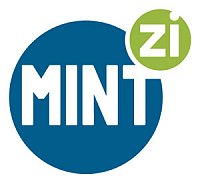
The nationwide and web-based STEM correspondence-circle aims to establish an offering for female pupils, which conveys the topicality and versatility of the subject STEM (science, technology, engineering and mathematics), in order to produce and consolidate a fundamental interest, which affects the later choice of a STEM degree program in a positive, lasting way.
The key factor behind the project idea is the outstanding difference of the large number of female students in the degree courses of agricultural and nutrition sciences, in comparison to the low numbers of female students in the “pure” STEM subjects, such as mathematics, chemistry or computer sciences.
Together with female professors, lecturers and students of various STEM degree courses of Halle university, exciting tasks from different STEM areas are put together for the correspondence-circle and carried out four times per school year. During every run the participants are assisted by qualified mentors.
Infofilm MINTzi
Mit Sicherheit verliebt (safely in love)

"Mit Sicherheit verliebt" is a student’ sex education program that supports pupils from grades 7-10 to develop a self-determined, reflected (healthy) relationship to their sexuality. For this purpose, students organize project days in order to integrally educate adolescents on puberty, the first time, contraceptives, pornography, sexual/gender diversity etc. The topics are imparted playfully and at eye level. Due to the small age gap a casual atmosphere is created, in which pupils can feel free to ask important questions and are provided with answers and explanations.
“Safely in love” is a project of the federal representation of medical students in Germany (Bundesvertretung der Medizinstudierenden in Deutschland e.V.) and was established in 2001 in the presence of the former Minister of Health Andrea Fischer. Since then, the prevention project is deeply rooted in the work of the medical students council and connects various medical faculties in Germany.
Compensation for disadvantages
Compensations for disadvantages are an instrument, in order to create equal opportunities for students, whose health situation affects their studies. Thereby it is insignificant, if it is a visible or invisible disability, a partial inefficiency (such as dyslexia), a mental or physical condition. An individual assessment takes place and the measures are aligned after the needs of the persons concerned.In order to have a compensation for disadvantages, people affected need to file an application in time and to show a medical certificate that provides information on duration, severity and effects of the mental or physical condition. On the grounds of data protection a detailed diagnosis does not occur. There are compensations in the area of study and exam achievements (such as extensions, exceptions from compulsory attendance, extended examination time, taking the examination in a separate room without disturbances, usage of technical devices or assistance, change of examination method) and in connection with the access to university (correction of average grade or waiting period). Also with regards to the claim for payment of long-term tuition fees, you can make use of compensations where appropriate. The application shall be confidential and must not be mentioned in certificates. The staff member of the representative for people with disabilities advises and supports, if you have any questions regarding the compensation of disadvantages.
Staff Committee
The staff committee is the representation of interests, elected by employees of the MLU. It participates, among other things, in recruitment processes and salary-based classifications and supports employees in executing their rights. The staff committee ensures that conditions, established for the benefit of employees, are respected. It records suggestions and complaints of employees, promotes equality between women and men, inclusion and career development of severely disabled employees and internationals, and cooperates with the youth and trainee representatives (JAV). The staff committee can propose measures that serve the university and its employees.
Office for the Prevention of Discrimination and Sexual Harassment
Martin-Luther-University Halle-Wittenberg attaches great importance to a non-discriminatory and non-violent interaction, an equal and trustworthy collaboration as well as good working and study conditions. Thus, it has adopted a Directive on the protection against discrimination, (sexual) harassment and violence and established a prevention office. It’s function is, to actively support the implementation of the Directive and to optimize current process options, in order to ensure an effective protection against discrimination, (sexual) harassment and violence, as well as expert support for people affected.
This includes the conception of various formats of further training and a target-group specific public outreach, as well as the support of university internal and external networking in the prevention of discrimination and counseling for victims. In addition, it actively supports the working group “sexual harassment” and is responsible for the website diskriminierungsschutz.uni-halle.de.
Infofilm Präventions- & Beratungsstelle Antidiskriminierung
Prodekanat Gender (Dean’s Office for gender issues (Faculty of Medicine))
The Dean’s Office, which was implemented for gender issues at the Faculty of Medicine in 2014, aims to work towards a reduction of gender imbalances in the field of medical research and academic education. It builds awareness for gender issues, uncovers open and hidden gender inequality and submits suggestions for the improvement of equality support. Thereby, it complies with the claim of the Council of Science for a continuation of the standards on gender equality of the DFG (German research community). The Dean’s Office for gender issues works closely with the Equal Opportunities Officers of the medical faculty and the clinic and with the family office of MLU.
The Dean’s Office published, among other things, “recommendations for gender-sensitive language” as well as a “gender-sensitive vocation guideline”.
Department for international students of the student council

The university life of international students is coined by various obstacles and challenges. Eventual language barriers, German bureaucracy with its many forms and requirements and cultural misunderstandings, complicate (university) life. The international(s) department helps international students in finding answers to their questions and supports them, to get along with their everyday life in Germany. Furthermore, it is linked with multiple initiatives and university institutions and tries to provide assistance in occuring problems.
Referent für Inklusion
The inclusion officer is the contact person when questions arise about studying and beyond due to a disability or chronic illness. Among other things, he provides information about compensation for disadvantages and possible assistance in studying.
Rektoratskommission "Anton Wilhelm Amo"
Anton Wilhelm Amo gilt als erster und über sehr lange Zeit einziger afrodeutscher Akademiker. Er studierte in Halle und in Wittenberg, wo er 1734 auch promoviert wurde. Seine Hallenser Disputation widmete sich der Rechtsstellung Schwarzer Menschen in Europa (De iure Maurorum in Europa), die Wittenberger Dissertation dem Leib-Seele-Thema (De humanae mentis apatheia). Amo wirkte dort, sowie ab 1736 in Halle und im Jahre 1739 in Jena als Dozent der Philosophie.
Im Jahre 2019 gründete die Martin-Luther-Universität eine Arbeitsgruppe, die inzwischen als Rektoratskommission „Anton Wilhelm Amo" aktiv ist und sich dem Gedenken an Anton Wilhelm Amo widmet.
[ Zusammensetzung der Kommission ]
Prof. Dr. Olfaf Zenker über Anton-Wilhelm Amo
Statement des Anton-Wilhelm-Amo-Bündnis Halle
Rektoratskommission "Gleichstellungsbeirat"
Rektoratskommssion zur Internationalisierung
Rektoratskommission zur Aufarbeitung der Universitätsgeschichte in den Diktaturen des 20. Jahrhunderts
Representative for severely disabled employees
The representative for severely disabled employees is elected every four years and represents, based on the provisions of Social Security Code IX, the interests of severely disabled employees and coequal persons at MLU. It has to be informed comprehensive and timely in every issue that concerns an individual or severely disabled people as a group and must be consulted before any decision making. For staff related measures as well as other measures (staff appraisals with severely disabled employees or coequal persons, reorganization of working procedures, creating new jobs suitable for people with disabilities etc.) the representative body for severely disabled employees has to be involved. They offer consultation hours on a regular basis as well as assistance in accessing grants for the pension office, employment office and integration office.
Senior College
Senior College
The senior college regards itself as a facility for continuing education for the generation 50 plus. It provides a diverse offering to remain active or to become active again. Target group are people interested in science and older adults, which are not employed or already retired (seniors, jobseekers etc.). Amongst lecture series, courses from all faculties and versatile projects, language and computer courses are part of the tender. The participation fee is 30€ per semester.
Sintoma - Medizin und Gesellschaft Halle (Medical science and society)
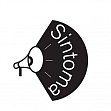
The Platform Sintoma emerged from a joined concern at MLU in 2018: Medical science has to adapt to the increasing demands and opportunities of a continually changing society. The group wants to meet the challenge and to contribute to a further development in accordance with ethical principles. Sintoma is locally rooted in Halle, but aims to take a stand for a constant improvement of medical care, solidary and together with other local and supra-regional organizations. In doing so, they expressly emphasize the necessity and appreciation of interdisciplinary teamwork of all players of medical care, and particularly the role of patients. They follow up with economic and ecological aspects, diversity, equality, structural questions in apprenticeship and day-to-day work and further issues, which become important in this context. It is a matter of addressing maladministration, obtaining information, to become active and develop an opinion that can be heard. Everyone is welcome to join the open meetings and to use the platform, whether or not you operate in the medical area or relate to the topic from other reasons.
Social & conflict counseling
The offerings of the social & conflict counseling are addressed to all employees of the MLU. Within the framework of an independent and confidential consultation, employees receive support in coping with personal or professional stressful situations. Reasons underpinning the advice, can be e.g. changes in professional tasks, conflicts within the staff, concerns about colleagues, problems of drug dependence, health or psychological burdens. Besides, an individual counseling and coaching, group sessions with the staff can be moderated or a return to work after a long period of illness can be guided. Anke Märker is furthermore contact partner for the AGG-complaints body of the MLU.
Sprecher*innen für Soziales des Studierendenrates (Spokesperson/s for social affairs of the student council)
The spokesperson/s for social affairs is/are the social conscience of the student council. Their main task is to help those who turn to the student council on the basis of serious financial difficulties. They offer application for social loans, which can also compensate for shortcomings in the short term.
Stabsstelle Vielfalt und Chancengleichheit (Staff unit for diversity and equal opportunities)
In 2019, the rector established a staff unit for diversity and equal opportunities, which comprises the subjects of equality, family, diversity and the protection against discrimination. The tasks include the conception and implementation of equality and diversity programs, as well as individual measures and strategic development with regard to equal opportunities and diversity.
Student support group “depression/ depressive state”
The student support group, which is assigned to the student union, provides a space to exchange with “like-minded people” about the condition and how to live with it. The group wants to help to achieve a level of understanding. There are often analogies among people affected, which can at least take away the feeling of being “different than others”.
Student council (StuRa)

Main purpose of the student council (short: StuRa) is the representation of student interests vis-à-vis other university committees, the university administration and the general public. For that reason, students elect the members of the student council and additionally pay a little fee to the student body each semester. The student council advocates for better studying conditions. Furthermore it offers free and confidential consulting services for students, which are part of the student body. Next to discrimination counseling they also provide consulting services on the concerns of law, social issues, BAföG and labor. Moreover there are many different study groups and units belonging to the student council.
Infofilm zum StuRa
Stud.IP-study group „Studieren mit Behinderung/ Study with disability“
The study group is a discussion board for MLU students with disability or chronic condition. It was initiated by Tim Langhammer in September 2011 and is a virtual meeting point for the exchange of experiences and problems in everyday university life.
German universities open to the world - against racism and chauvinism (universities for openness, tolerance and against xenophobia)
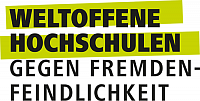
In a nationwide campaign with other universities, MLU takes a public stand against xenophobia and nationalism and takes steps towards open-mindedness and cosmopolitanism. Thereby, the university responds to racially motivated verbal and physical violence in Germany and to isolation trends in a number of states. Perspectives, diversity of opinions and an international exchange are the basics of the research and teaching activity at universities. In light of increasing xenophobic tendencies and a growing success of populist slogans, higher education institutions feel challenged to take a collective stand for those values. University administrations want to encourage their members in the resistance against xenophobia and act upon that within their regional and international networks. An open and international campus and the international mobility of tutors and students are essential bases of high-quality teaching, learning and research.




